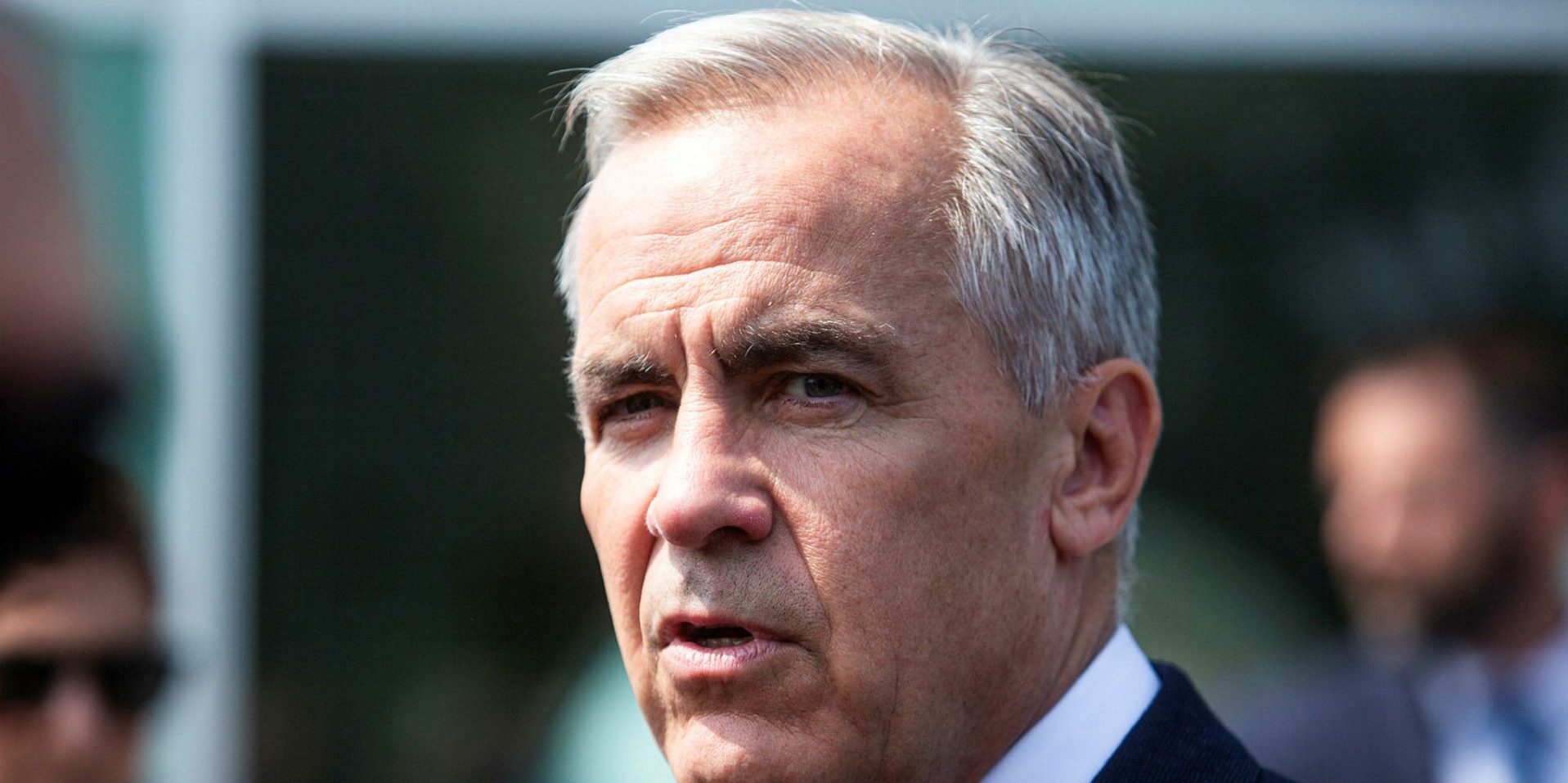‘The honeymoon period will be over’: politicos expect high bar for Carney’s first budget, and omnibus-bill headaches

Reining in operational expenses while also increasing spending on nation-building projects will be a tough balancing act that will put pressure on Prime Minister Mark Carney’s government as it charts a course with its first federal budget to be released this fall.
“This one is particularly important because the prime minister has signalled there will be expenditure restraint, and at the same time he has made two potentially … contradicting commitments,” said David McLaughlin, a former senior provincial public servant and chief of staff to then-prime minister Brian Mulroney.
“One is to balance the operating budget of the government within three years, and at the same time he’s proposing to invest—spend more in some key areas, particularly national defence, border security, [and] infrastructure projects,” said McLaughlin. “He has to figure out how he’s going to balance those two competing pressures.”
The House is scheduled to return on Sept. 15, while the Senate is set to come back on Sept. 23. Consultations are currently open for the federal government’s budget, to be released in the fall.
McLaughlin told The Hill Times that the budget—and any resulting fallout—will likely dominate Parliament for quite a while, partly because this will be Carney’s (Nepean, Ont.) opportunity to establish a new economic direction to set itself apart from the last decade under the previous Justin Trudeau administration.

“[Carney is] still benefiting from the change element that he is not Justin Trudeau, and so the opposition and other observers will be looking to see to what extent he reverts back to what we’ve been used to with Liberal governments, which is spending more on a lot of social programs, [and] a lot of federal interventionism in provincial areas of responsibility. Think pharmacare, things like that,” said McLaughlin. “The pressure that he’s under is to keep showing that he is different from the past Trudeau government, which helped him electorally, and so he cannot forget that.”
McLaughlin said that while Carney is distinguishing himself from Trudeau, he also has to signal to Liberal voters that he has not abandoned “Liberal values or Liberal expectations, in terms of government interventionism [or] government spending.”
“What Carney has signalled is that he is not willing—at this stage anyways—to expand investment in federal provincial transfers that Trudeau put it in place. He’ll keep them going, but he’s signalling that he’s not prepared to expand them. And that is a departure from what we would have expected from the past Liberal government, which was very much about spending on social programs,” said McLaughlin. “And secondly … [Carney] got a lot of NDP votes last time, right? The NDP collapsed, and then they went Liberal, for the most part. They would like to see more spending, more government interventionism, and so … Carney has to be mindful of that in order to maintain that NDP support.”
Allen Sutherland, president and CEO of the Institute on Governance, told The Hill Times that the budget will be difficult to calibrate.
“You don’t solve everything in this fiscal year, but I think [Carney’s] challenge would be to set a downward trajectory over time for the federal deficit,” said Sutherland.
Carney released a list of seven priorities for his government in a mandate letter to his cabinet ministers on May 21. Sutherland said he expects the Carney government to focus in the fall on that list of priorities, which includes establishing a new economic and security relationship with the United States, addressing housing affordability, and strengthening the Canadian Armed Forces.

“This is a government that has committed itself to be action oriented. I think that the overall judge of a successful fall session is what can they get through the legislative process, and what can they do outside the legislative process that addresses the seven missions,” said Sutherland. “One of the things that I’ll be looking for during this fall is what private members’ bills come forward, and is this an opportunity for the opposition parties … to put in front of the public things that eventually get passed, and kind of force the government to take action, which might be along the lines of the seven missions, but might be something to the side, like, for instance, more in the public safety space.”
Jordan Paquet, vice-president of Bluesky Strategy Group and a former Conservative staffer in the office of then-prime minister Stephen Harper, told The Hill Times that Carney has set the bar very high for himself in terms of reining in spending, but also having to spend on capital projects for his “build, baby, build” agenda.
In the spring, the Carney government tabled Bill C-5, the One Canadian Economy Act, a major omnibus bill that received royal assent on June 26. Other omnibus bills introduced in the spring, but which have yet to pass, include Bill C-2, the Strong Borders Act; and Bill C-4, the Making Life More Affordable for Canadians Act.
Bill C-2 proposes sweeping changes to Canada’s border and immigration systems, including changes to the Customs Act, the Controlled Drugs and Substances Act, the Canada Post Corporation Act, and the Oceans Act, among other acts. Bill C-4 includes an income tax reduction, and would eliminate the GST for new homes under $1-million. That bill would also officially scrap the consumer carbon tax, and exempt political parties from federal and provincial privacy laws.
Paquet said that since Carney is leading a minority Parliament, he should be wary of any “poison pills” in omnibus legislation that opposition parties won’t support.

“We’ve got to remember that … it’s basically the Bloc [Québécois] and the Conservatives that control the majority of the committees, and can really set the agenda. They can amend legislation in there if they choose to,” he said. “It’s going to be important for the government to be talking to opposition [MPs] to find areas where they can collaborate. I think in certain cases—if they’re talking about building national projects, like energy-type projects [or] economic growth projects—Conservatives have shown some willingness to help support those.”
In an interview with The Hill Times, Democracy Watch co-founder Duff Conacher called omnibus bills unfair, arguing they violate the rights of MPs by forcing them to use a single vote on legislation that may contain very different proposals.
“It’s not necessarily a faster way because you can get a lot of people upset at once by addressing a whole bunch of different things in one bill, and that can end up slowing the bill down,” he said.
Katherine Scott, a senior researcher with the Canadian Centre for Policy Alternatives (CCPA), told The Hill Times that the 2025 federal budget will be huge, but the big question is whether that budget will be similar to the Liberal budget in 1995 under the Paul Martin administration, which saw radical reductions in program spending. The 1995 budget brought in direct spending cuts of $25.3-billion over three years—an average of roughly 20 per cent across government—and slashed transfers to provinces and territories for health, education, and social services by $7-billion, according to Scott in a post on the CCPA website on July 31.

“Some of the signals that are coming out [is] that Mr. Carney is looking for significant cuts in operating spending, and … having said on the face of it that he’ll protect transfers to other orders of government, [but] that’s not to say that other transfers won’t be cut,” she said in an interview. “He said he’ll make investments and so in physical capital and infrastructure. What kind of projects might be identified? Will those be identified in the budget or not? Those are big questions that are still outstanding.”
Hunter Doubt, who is president of the Government Relations Institute of Canada and Expedia Group’s head of government and corporate affairs, told The Hill Times in an emailed statement on Aug. 11 that the upcoming budget will be a political and economic litmus test for Carney’s promises to cut regulatory red tape and rein in spending.
“This will be the clearest signal yet of how the government plans to manage its fiscal agenda while responding to U.S. trade tensions, seeking opportunities in emerging markets, and addressing domestic priorities like national projects, energy, health care, and housing. The budget may also reveal what national projects from Bill C-5 will advance,” Doubt said in the email. “The return of House committees will give opposition MPs their first sustained opportunity to scrutinize the government’s agenda. Coupled with the anticipated return of [Conservative Leader] Pierre Poilievre to the Commons, this will mark the beginning of a more co-ordinated and assertive opposition presence.”
Doubt described the spring sitting as unusually brief with the Carney government moving major legislation at remarkable speed with minimal opposition pushback. In the fall, that honeymoon period will be over, he said.
“Legislative timelines will be tighter, opposition scrutiny sharper, committees fully active, and consensus harder to build. The government will no longer be able to rely on goodwill alone, and success will hinge on its ability to navigate a more contested parliamentary environment,” said Doubt.
The Hill Times
Government bills currently before Parliament
House of Commons
Second reading:
- C-2, the Strong Borders Act. This bill focuses on strengthening border security, combating transnational organized crime, and enhancing “the integrity and fairness” of the immigration system, according to Public Safety Canada. The bill proposes amendments to the Oceans Act to expand services of the Canadian Coast Guard, amendments to the Sex Offender Information Registration Act to allow RCMP to share information collected about registered sex offenders with domestic and international partners, and amendments to the Immigration and Refugee Protection Act with the goal of modernizing the asylum system, among changes to other acts.
- C-3, An Act to amend the Citizenship Act (2025). This bill would extend Canadian citizenship by descent to those born outside Canada beyond the first generation, provided the Canadian parent has a “substantial connection” to Canada. If passed, the bill would reverse a change to the Citizenship Act made by then-Conservative prime minister Stephen Harper in 2009 that introduced a “first-generation limit” when it came to citizenship status.
- C-8, An Act respecting cyber security, amending the Telecommunications Act and making consequential amendments to other Acts. This bill would revise the Telecommunications Act and establish the Critical Cyber Systems Protection Act, as well as grant new enforcement powers for cybersecurity across Canada’s critical federal infrastructure.
Consideration in committee:
- C-4, the Making Life More Affordable for Canadians Act. This bill is intended to provide Canadians with tax relief and other measures to reduce the cost of living such as by eliminating GST for first-time homebuyers on new homes under $1-million, and removing the consumer carbon price. It also includes amendments to the Canada Elections Act.
Senate
Consideration in committee:
- S-2, An Act to amend the Indian Act (new registration entitlements). This bill proposes changes intended to address the issues of enfranchisement, deregistration, acquired rights to natal band membership, and to replace some outdated language in the Indian Act.






 LICENSING
LICENSING PODCAST
PODCAST ALERTS
ALERTS













